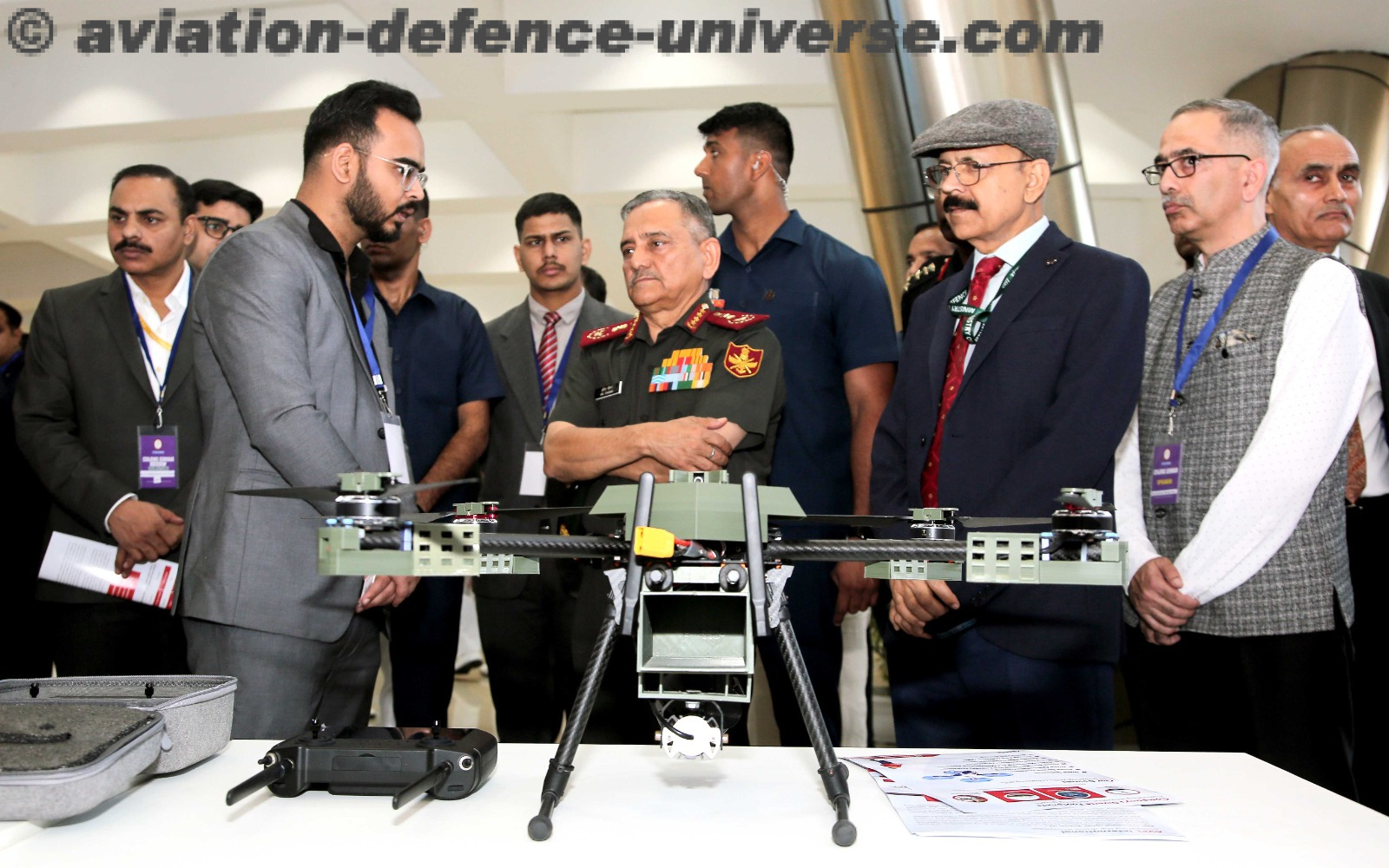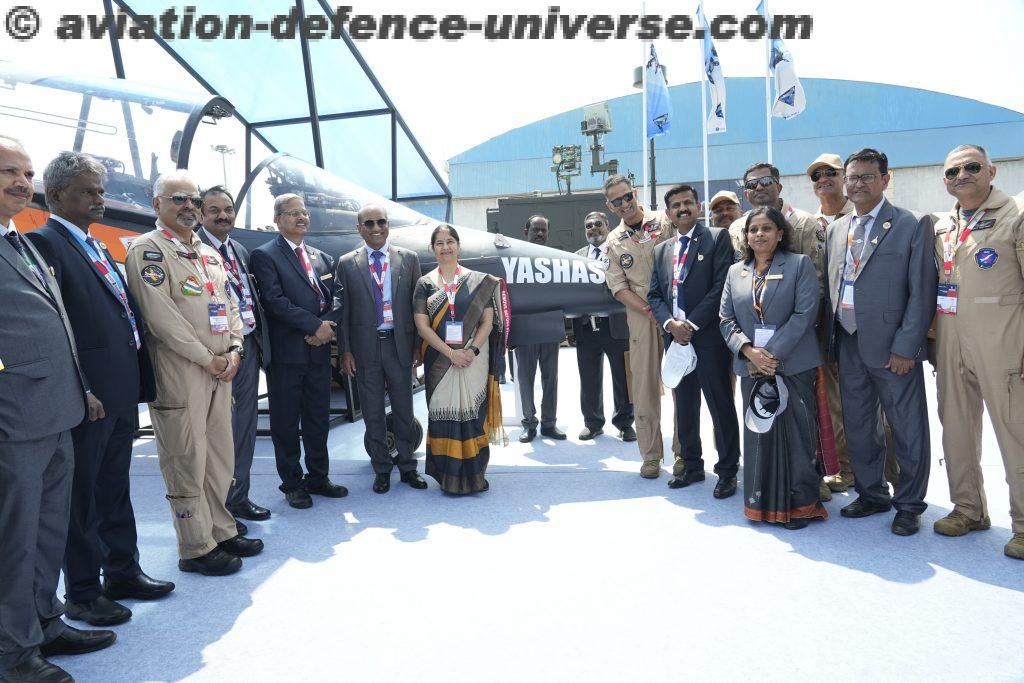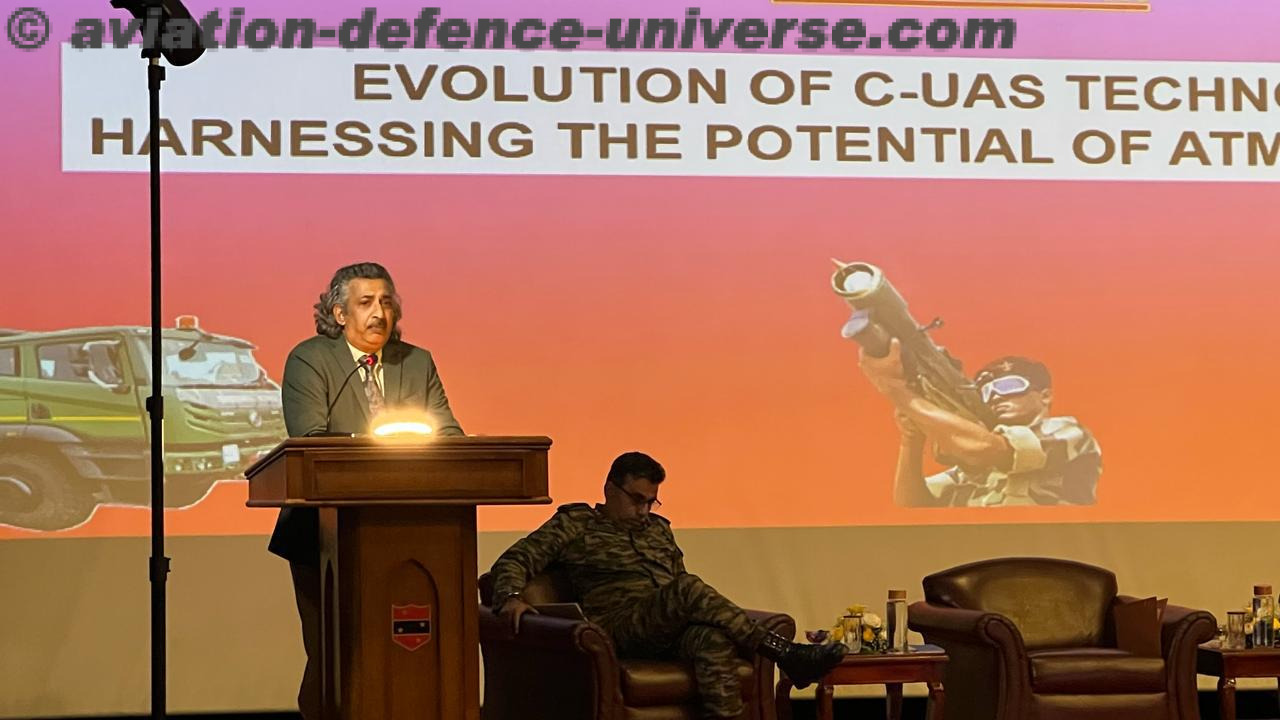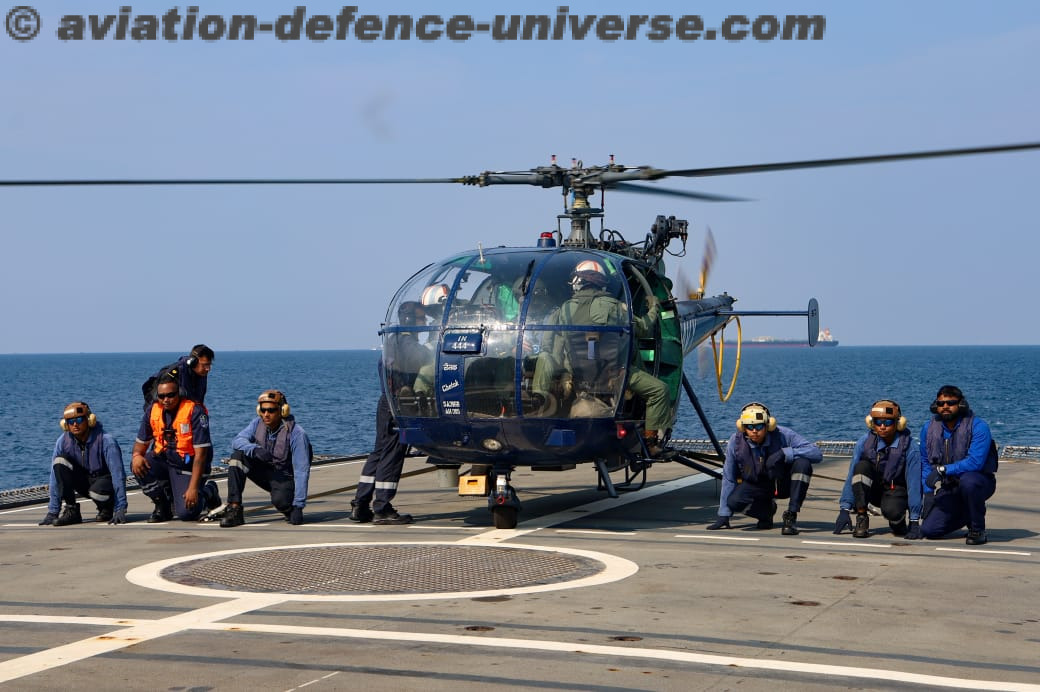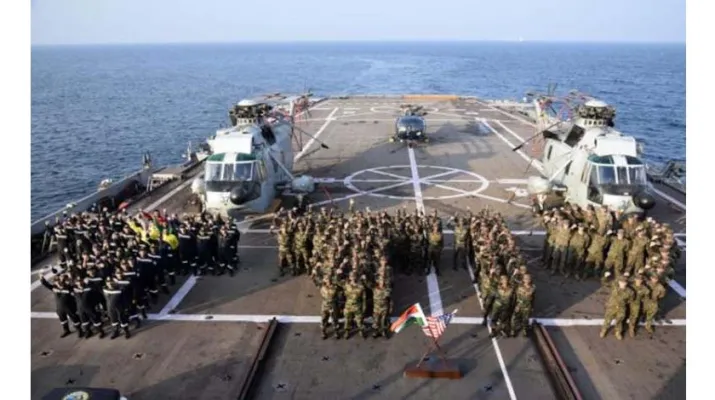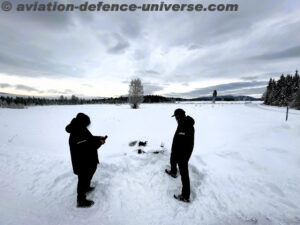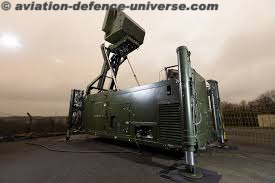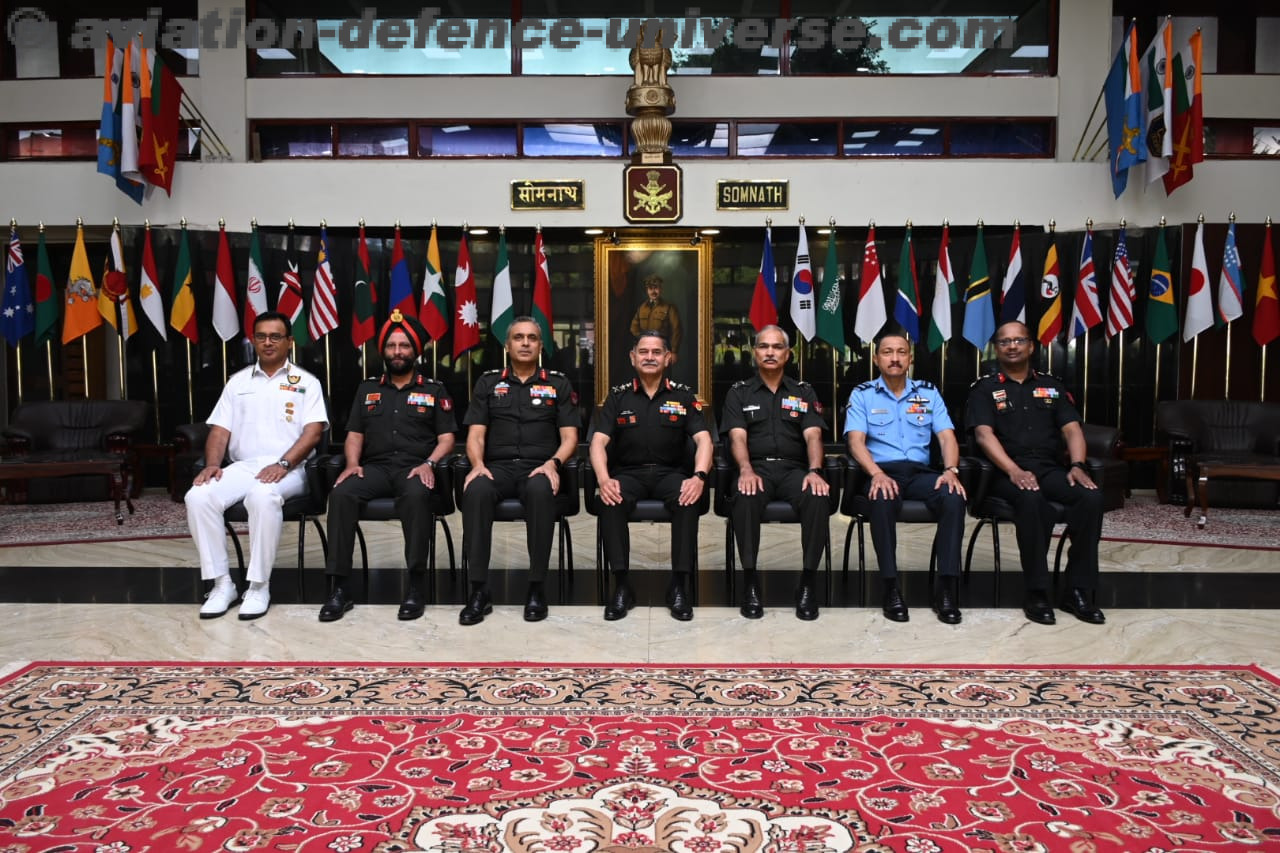- The simulation, successfully carried out between Valencia de Alcántara in Cáceres and Marvao in Portugal, was attended by over 400 participants, including the project team, UME personnel, 112 Extremadura, Civil Protection Portugal, the Extremadura Health Service, the Red Cross and the Fire Department
- The aim was to test the standardized protocols that improve coordination in multi-victim incidents on a next-generation technology basis incorporating 5G communication, big-data based predictive analytics and Artificial Intelligence, drones and digital twins
- Indra coordinates the consortium of 17 partners, made up of emergency response organizations, companies, universities and technological centers from eight European countries within the Valkyries project funded by the H2020 innovation program
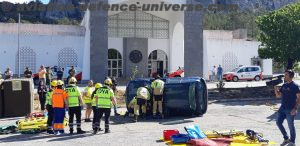 Madrid. 08 May 2023. A fire with several hot spots begins in a wooded area in the province of Cáceres and spreads at high speed towards Marvao in Portugal, thus becoming a major fire affecting a large Portuguese natural park. The dense smoke causes a collision between a bus and a number of cars, leading to multiple victims. The above could be a real situation, but fortunately it was only a simulation to be better prepared to cope with this kind of cross-border emergency and analyze how the coordination between the safety and emergency teams in the different countries can be improved.
Madrid. 08 May 2023. A fire with several hot spots begins in a wooded area in the province of Cáceres and spreads at high speed towards Marvao in Portugal, thus becoming a major fire affecting a large Portuguese natural park. The dense smoke causes a collision between a bus and a number of cars, leading to multiple victims. The above could be a real situation, but fortunately it was only a simulation to be better prepared to cope with this kind of cross-border emergency and analyze how the coordination between the safety and emergency teams in the different countries can be improved.
From May 3-5, Valencia de Alcántara (Cáceres) hosted a seminar on the Indra-led European Valkyries project, which included this simulation to standardize and test the harmonized protocols for the nomenclature, processes, equipment and operations developed in the project on a next-generation technology basis, comprising technologies such as 5G communication, big-data based predictive analytics and Artificial Intelligence, drones and digital twins.
The aim of this solution is to assist inter-sectoral emergency teams in situations that affect more than one country, be they due to natural or man-made disasters, resulting in scenarios of great operational complexity with multiple victims to attend to.
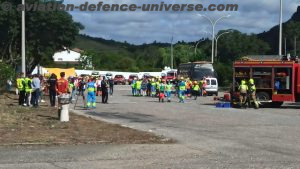 The simulation, successfully carried out on May 4th, involved over 400 participants, including the Valkyries project team, personnel from the UME (Military Emergency Unit), 112 Extremadura, Civil Protection Portugal, the Extremadura Health Service, the Red Cross and the Fire Department.
The simulation, successfully carried out on May 4th, involved over 400 participants, including the Valkyries project team, personnel from the UME (Military Emergency Unit), 112 Extremadura, Civil Protection Portugal, the Extremadura Health Service, the Red Cross and the Fire Department.
The seminar was attended by Nieves Villar, General Manager of Emergencies, Civil Protection and Interior, José Antonio García Muñoz, Deputy Government Representative in Cáceres, Alberto Piris, Mayor of Valencia de Alcántara, and Luis Costa, Vice-President of the Municipal Chamber of Marvao, as well as important officials from emergency organizations in Spain and Portugal. In addition to the simulation, there were also awareness-raising and training activities and the capabilities of the various organizations were presented.
Indra has developed a digital twin (Hybrid Twin Lab) for its iSafety emergency management solution, which was used as a command and control center to assist with the coordination of the different groups of personnel. This solution can be used to respond to all kinds of incidents and crises by offering centralized management of the available resources and tracking of the emergency resolution. During the simulation, the technological tools obtained real-time information at the cross-border forward command posts to facilitate the handling and coordination of the emergency.
In addition to actively participating in this exercise, Indra coordinates the consortium of 17 partners, made up of emergency organizations, companies, universities and technological centers from eight European countries in Valkyries, a project with a budget of 6 million euros funded by the H2020 innovation program.
The company has incorporated all its experience into the design of standardization and harmonization principles, providing proprietary solutions for the drills, decision-making, mission-planning and risk identification and management that have served as a starting point for the development of new solutions for first responders in emergency situations.
In addition to the use case conducted this week, Valkyries is planning three other simulations in different European countries: a toxic spill in the Danube in Slovakia requiring coordination with Italian organizations, an earthquake on the border between Bulgaria and Greece and an offshore oil spill disaster caused by a collision in the North Sea, in which Norway, Sweden and Denmark will take part.
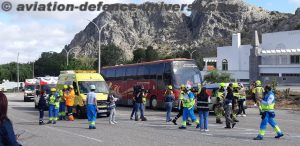 For responses to fires and early detection Indra has its own Faedo solution, the most advanced system for protection against forest fires currently in service in Europe. Faedo consists of a set of thermal cameras and weather stations that monitor day and night and send images and data in real time to the control center. Powerful software based on artificial intelligence processes them and searches for any smoke plume or heat source to determine whether a fire is taking place.
For responses to fires and early detection Indra has its own Faedo solution, the most advanced system for protection against forest fires currently in service in Europe. Faedo consists of a set of thermal cameras and weather stations that monitor day and night and send images and data in real time to the control center. Powerful software based on artificial intelligence processes them and searches for any smoke plume or heat source to determine whether a fire is taking place.








